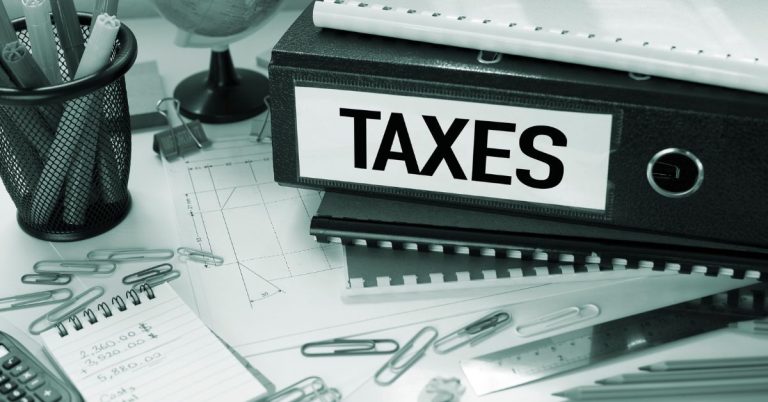Is Training Tax Deductible? Taxes on Work-Related Training That People Pay For Themselves
Can training costs be deducted from taxes when starting a new business as a limited company?
HM Revenue & Customs (HMRC) consider training expenses incurred in setting-up a new trade to be related to employment. This means that you may claim tax relief for training costs if the training is work-related.
The rules around what counts as work-related vary depending on whether you are self-employed or employed by another person. If you are self-employed, it is likely that you will be able to claim tax relief for training expenses incurred in setting a new trade. You must show that the training is directly linked to the activity you intend to carry out as a self-employed trader.
If you are employed by someone else, there are different rules about how much training you can receive without incurring additional taxation. If you are paid less than £5,000 per annum, you cannot claim tax relief for training unless it meets certain criteria. For example, the training must be directly related to the job you do for your employer.
You may be eligible for tax relief even if you are employed by someone who does not pay you enough money to meet the threshold. However, you may still be liable to National Insurance contributions.

Tax breaks for training for self-employed people and sole traders
Self-employment income is taxed differently. This means that you can deduct some expenses incurred while running your business. However, there are limits to what you can claim as a deduction. For example, you cannot claim any deductions for capital expenditure. You can only claim deductions for revenue expense. These expenses include costs associated with selling products and services, such as advertising, marketing, product development, office rent, etc.
If you are a sole trader or a partnership, you can claim deductions for both revenue and capital expenditure. If you are an employee, you can only claim deductions for capital expenditure.
The amount of training you receive is likely to affect how much you can claim as a deductible expense. There are three main types of training:
1. Paid training – paid training involves spending money on courses and seminars. This is usually done when you want to learn something new.
2. Free training – free training does not involve paying anything for it. Instead, you attend events where you learn things without having to pay for them.
3. Partly paid training – partly paid training involves spending money for some parts of the course, but not others. For example, you might spend £100 on a seminar, but nothing on a course.
You can claim up to £5,300 per annum for training under section 38A of the Income Tax Act 2010. This figure is based on the average cost of attending a training event.
However, you cannot claim any part of your salary as a deduction. In addition, you cannot claim any expenses related to the purchase of property.
Training for those in charge of and working for limited companies
HM Revenue & Customs (HMRC) says it does not allow tax relief on training expenses incurred by directors or employees of limited companies. This includes expenses paid out of the company’s funds for learning new skills or gaining new knowledge.
Class 1A NI is payable where the training is arranged personally by the director or employee without the involvement of another person. Class 1NI is where the training is organised by another person on behalf of the director or employee. In both cases, reimbursement must be added to the individual’s salary before calculating any taxes or national insurance payments.
Any training costs incurred by a member of a limited company must first be deducted from his or her gross income before calculating any taxes or NI contributions.
The rules apply to both individuals and limited companies.
Travel expenditure for training courses
Training courses are often eligible for income tax relief under section 17 of the Income Tax Act 2007. This applies where there is no qualifying course fee payable, or where the course fees do not exceed £1,500 per annum. If you pay out of pocket for the cost of the course, you can claim up to 80% of the amount paid towards the qualification.
The rules governing qualifying courses differ depending on whether the course is run by a charity or registered educational body. For example, if the course is run by an educational institution, it must be approved by Ofqual. A charitable organisation does not require approval.
If you are running a course yourself, you can claim 50% of the tuition fee. You can claim 25% of the tuition fee if the course is taken part in by someone else. However, you cannot claim this allowance if the person taking the course pays for the course themselves.
You can claim the full amount of the course fee if the course is completed within three months of starting. Otherwise, you can claim half of the course fee.
There are some exceptions to the above rules. These include:
• Courses offered by universities and colleges
• Courses run by schools
Frequently Asked Questions
How to show that you need tax relief for training
The government introduced legislation in April 2016 that requires employers to provide employees with certain types of training. This included providing employees with information about how to access the National Employment Savings Trust (NEST), which allows people to save money into a personal pension account. Employees are entitled to make a contribution towards their NEST account, and in return receive tax relief on contributions up to £4,200 per person.
Employees have been required to complete a course called ‘Personal Tax Planning’ since October 2017. In addition to this, there are now specific requirements around what constitutes ‘external training’. For example, it must be inextricably linked with the terms of employment, and it must be delivered outside of work hours.
There are three ways in which an employer could meet the requirements of the law. They include:
• Providing employees with information about how they can access their NEST accounts
• Requiring employees to take courses that are already offered externally
• Paying for the cost of courses that are already being taken by employees
What kinds of training you can’t get tax breaks for
HM Revenue & Customs (HMRC) says it does not allow tax relief for anything outside the scope of employment. This includes things like travel expenses, clothing allowances, meals, conferences and training courses. However, there are some exceptions. For example, HMRC allows employees to claim up to £1,250 per year towards the cost of attending certain types of courses relating to their job. These include qualifications such as NVQs, City & Guilds certificates, and apprenticeships. You can find out more here.
The law around tax relief for education and training is complex, so we’ve put together this guide to help you understand exactly what you’re allowed to claim.






